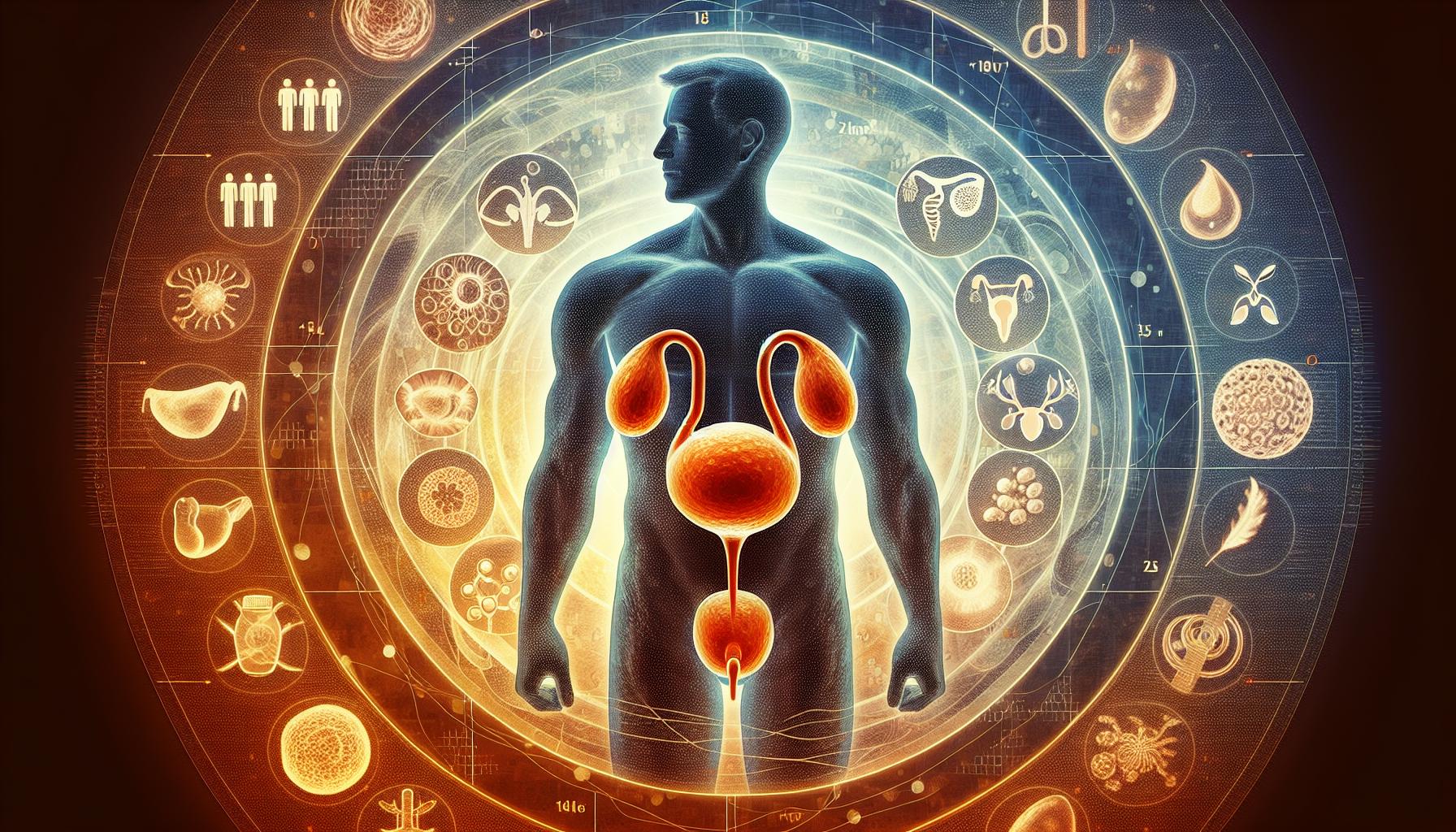Introduction
Do you find yourself wondering, what cause enlarged prostate? Here’s your concise answer: The primary cause behind an enlarged prostate, also known medically as benign prostatic hyperplasia or BPH, generally stems from the hormonal changes that occur as men age. This simple clarification, however, just scratches the surface of this intricate issue. To better understand this health condition, we must delve deeper into the causative factors, symptoms, treatment options and prevention measures. This article is tailored to address all these predominant aspects, giving you a thorough insight into this common yet often misunderstood medical condition.
The Fundamental Facts Behind an Enlarged Prostate
An enlarged prostate is a universal narrative for men beyond the age of 50. Strikingly, most men accept it as an inevitable saga synonymous with aging. The prostate gland, residing below the bladder, portrays a pivotal part in the reproductive system of a male, secreting seminal fluid that nourishes the sperms. With advancing age, the prostate gland might endure an augmentation, becoming an unwelcome intruder in a man’s life with its uncomfortable symptoms.
The Underlying Causes Decoded
In spite of heightened scientific advances, the exact cause of prostate enlargement remains somewhat of an enigma. Age-related hormonal shifts are considered the main culprits. As men advance in years, the disparity in the levels of estrogen and testosterone escalates, potentially fueling the growth of the prostate cells, leading to its enlargement.
Subtle Warning Signs of an Enlarged Prostate
Falling prey to the clutches of an enlarged prostate isn’t a sudden shift. This condition plays out subtly, creeping in with modest, initially unnoticeable urinary symptoms. However, they gradually grow in intensity and frequency, turning from mildly bothersome to seriously discomforting.
Recognizing the Unseen Symptoms
Identifying these early signs can be instrumental in getting timely treatment. Typical symptoms include frequent urination, especially nocturnal disturbances, a strong, incessant urge to urinate, difficulty starting and stopping urination, weak urinary stream, and feeling like the bladder isn’t fully empty even after urinating.
Busting Myths about Prostate Enlargement
Enlarged prostate, while unnerving, shouldn’t be deemed as a one-way street to prostate cancer. Yes, it’s true that many men who have prostate cancer also have an enlarged prostate. But, these are two discrete conditions, and one doesn’t lead or contribute to the other.
Discerning the Difference
Prostate enlargement often stems from a noncancerous increase in the number of cells in the organ, while prostate cancer is characterized by malignant cell growth. Confirming the presence of either condition involves medical tests and professional diagnosis.
Coping and Treating an Enlarged Prostate
Whether it’s dealing with the inconvenience of frequent urination or handling more vehement symptoms like urinary tract infections, living with an enlarged prostate indeed presents challenges. But it’s a challenge that several men have learned to manage and overcome with many avenues of treatment available today.
Shining a Light on Treatment Options
Treating an enlarged prostate depends upon the severity of the symptoms and overall health condition of the individual. The spectrum of treatment options spans from lifestyle modifications, medication, minimally invasive therapies to more radical interventions like surgery.
Conclusion
Age might be the primary driver of an enlarged prostate. However, with our understanding of the symptoms, debunking of myths, and knowledge of available treatments, it’s clear that this condition doesn’t have to eclipse a man’s quality of life. It’s indeed a resolvable issue given the right knowledge, care, and medical attention.
Frequently Asked Questions
1. Does an enlarged prostate affect sexual function? It can, but it doesn’t always. Some men with an enlarged prostate may notice changes in sexual function, such as problems maintaining an erection, but this is not universal.
2. Are there any home remedies for an enlarged prostate? While home remedies aren’t substitutes for medical treatments, some habits like limiting beverages in the evening, reducing intake of alcohol and caffeine, and doing kegel exercises can help with coping symptoms.
3. Can diet impact an enlarged prostate? Yes, certain foods like red meat and high fat products are believed to contribute to prostate enlargement. A balanced diet comprising fruits, vegetables and lean protein can promote prostate health.
4. Is frequent urination always a sign of an enlarged prostate? No, frequent urination can indicate various conditions such as urinary tract infections, diabetes, or bladder problems, too. So it’s important to consult with a healthcare provider for diagnosis.
5. What complications can arise from an enlarged prostate? If left untreated, an enlarged prostate can lead to complications like urinary tract infections, bladder or kidney damage, and bladder stones.


